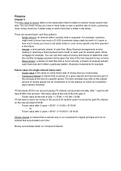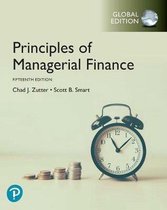Samenvatting
Summary of Financial Accounting Chapters 5, 10 & 11 (ISBN: 9781292261515)
- Instelling
- Hanzehogeschool Groningen (Hanze)
This summary includes chapters 5, 10 & 11 from Finance (FAC), part of year 2, period 3 at IBS. It includes important keywords, concepts as well as ways to calculate different capital budgeting methods using Excel and other useful screenshots!
[Meer zien]






